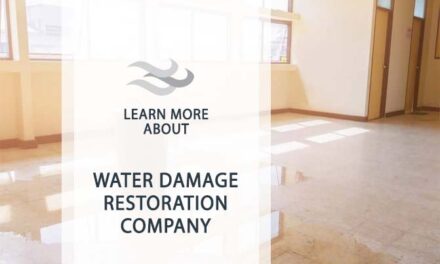Does Insurance Cover Water Damage
Water damage is a common and often costly issue that can occur in any property. Whether you own your home or rent, the consequences of water damage can be devastating. In this article, we will explore the important question: Does insurance cover water damage? We will delve into the details of renters insurance, what it typically covers, and how you can protect your property and belongings in case of water damage.
Understanding Insurance Cover Water Damage
If you’re a property owner, you might already be familiar with homeowners insurance, which provides coverage for your home and its contents. Instead, you can choose insurance to cover water damage, specifically designed to safeguard tenants and their personal belongings.
Renters insurance is a type of policy that offers coverage for various unexpected events that can damage or destroy your personal property. These events can include fire, theft, vandalism, and yes, water damage. However, the extent of coverage for water damage can vary depending on the policy and its terms and conditions.
Types of Water Damage Covered by Renters Insurance
Most insurance cover water damage policies provide coverage for certain types of water damage. Here are some common types of water damage that may be covered:
- If a pipe in your rented property breaks because of freezing weather, causing water damage to your belongings, your renters’ insurance will usually cover the cost of repairs and replacements.
- Leaky Roof: If your roof leaks and damages your possessions, renters insurance may cover the losses, but this often depends on the cause of the leak and the terms of your policy.
- Fortuitous Overflow: If you fortuitous leave a faucet running and it causes water damage, renters insurance may help cover the repair costs.
- Device Leaks: If a malfunctioning appliance, such as a dishwasher or washing machine, causes water damage, your renter’s insurance may provide coverage.
Reviewing your policy carefully is crucial to understanding the specific scenarios in which it covers water damage. Additionally, renters insurance typically covers damage to your personal property but may not cover structural damage to the rental property itself, which is the responsibility of the landlord.
Exclusions and Limitations
While renters insurance can be a valuable safeguard against water damage, it’s essential to be aware of the exclusions and limitations that may apply. Insurance policies frequently impose specific conditions that you must meet for coverage to become valid. Here are some common exclusions and limitations related to water damage:
- If the water damage is a result of your negligence, such as failing to address a leak promptly, your renters’ insurance may not cover the cost of repairs.
- Flood Damage: Renters insurance typically does not cover damage caused by floods. For this type of coverage, you would need to purchase a separate flood insurance policy.
- Gradual damage: Renters insurance may not cover water damage that occurs gradually over time, such as due to long-term leaks or humidity.
- Water Backup: Some policies exclude damage caused by water backup from sewers or drains, while others offer optional coverage for this type of damage.
It’s essential to discuss these exclusions and limitations with your insurance provider and ensure you have a clear understanding of what your policy covers and what it does not. If you have concerns about specific scenarios, consider discussing them with your insurance agent to explore additional coverage options.
Making a Claim for Water Damage
If you experience water damage in your rented property and believe your renter’s insurance covers it, you should follow specific steps to file a claim:
- Document the Damage: Take photographs or videos of the water damage and any affected personal property. This visual evidence can be crucial when filing a claim.
- Notify Your Landlord: Inform your landlord or property manager of the water damage as soon as possible. They may need to take immediate action to address the issue.
- Contact Your Insurance Provider: Reach out to your renter’s insurance company to initiate the claims process. Provide them with all the necessary documentation and information.
- Cooperate with Adjusters: Cooperate with any insurance adjuster assigned to your claim and provide them with the requested information to accurately assess the damage.
- Keep Records: Maintain detailed records of all communication with your insurance company, including dates, times, and the names of individuals you speak with.
Remember that the claims process can vary from one insurance company to another, so it’s essential to follow their specific guidelines and requirements. Timely and thorough documentation of the damage is key to a successful claim.
Protecting Your Property from Water Damage
While renters insurance can provide valuable protection, it’s also essential to take proactive measures to prevent water damage in the first place. Here are some steps you can take to safeguard your rented property:
- Keep an eye out for any signs of leaks or water damage in your rented property, such as water stains, peeling paint, or musty odors.
- Report issues promptly: If you notice any problems, such as a leaky faucet or a running toilet, report them to your landlord or property manager immediately to prevent further damage.
- Use water leak detectors: Consider installing water leak detectors in key areas of your rented property. These devices can alert you to potential leaks before they cause significant damage.
- Protect valuable items: Store valuable possessions on higher shelves or in waterproof containers to minimize the risk of damage in case of water intrusion.
- Know your responsibilities: Understand your responsibilities as a tenant regarding maintenance and repairs. Follow the terms of your lease agreement to avoid disputes with your landlord.
By taking these preventive measures, you can reduce the likelihood of experiencing water damage and the need to file a renters insurance claim.
Conclusion
In conclusion, renters insurance can provide valuable protection against various types of water damage, but it’s essential to understand the specific coverage and limitations of your policy. Understand what your insurance covers and excludes to make informed decisions about protecting your personal belongings in case of unforeseen events.
If you own property or are considering renting, having renters insurance in place can provide peace of mind knowing that you have financial protection in case of water damage or other unexpected incidents. However, it’s equally important to take proactive steps to prevent water damage and maintain the condition of your rented property.
Remember that the claims process for renters insurance can vary, so be sure to communicate promptly with your insurance provider if you experience water damage. Timely action and thorough documentation are key to a successful claim.
For professional assistance in the event of water damage or other property-related emergencies, consider Del Mar Builders as a top fire restoration company. Del Mar Builders specializes in restoring properties and helping homeowners and renters recover from unexpected disasters.




